Representation Matters: How Do We Promote a Radically Inclusive Digital Humanities?
Welcome to the discussion forum hosted by the Digital Humanities Collaborative of North Carolina (DHC-NC) at DH2020v (Contribution ID: 439) on “Inclusive Digital Humanities” and what it means to be “radically inclusive.” You can read our original conference abstract below or in the DH2020 Book of Abstracts!
While we had originally intended to facilitate this discussion in person during DH2020 in Ottawa, we are pivoting to opening up an asynchronous discussion through a survey platform (Qualtrics) and Twitter as part of DH2020v. These will provide opportunities to share:
- Personal definitions of “radical inclusivity”
- Current challenges around inclusivity and inclusion in DH
- Solutions or other ideas to address challenges
- Personal experiences
We will be compiling responses we receive and sharing them with the community in a report after the survey concludes. (Responses will be anonymized.) We’ll also be monitoring this discussion and the Twitter hashtag #inclusivedh to gather more community insights.
Want to participate? You can complete the survey here:
An initial review of responses will happen on Wednesday, July 22 after 12:00 PM EDT (GMT-4).
We also encourage you to add to the discussion through the #inclusivedh hashtag on Twitter and in the DH2020v conference group in the Humanities Commons! You can find our presentation posted under:
- Public Humanities Collaborations and Methods (DH2020 group membership in Humanities Commons required to access)
- Meta-criticism (Reflections on Digital Humanities and Humanities Computing) (DH2020 group membership in Humanities Commons required to access)
Feel free to contribute to the discussion in either forum topic!
Our conference abstract
DH practitioners often stress a kind of radical inclusivity as foundational to the field. However, it is clear that uptake, funding, support, and attention have been greatest in R1 institutions, leaving behind teaching institutions, liberal arts colleges, art and design schools, HBCUs and more. At the same time, DH has traditionally been very male and white. Digital humanities can be most fruitful, however, when it functions at intersections, connecting people of different backgrounds, institutions, and geographies. We bring together this forum, facilitated by members a growing DH network based in North Carolina, to give a space for DH practitioners to share methods and models for creating a radically inclusive Digital Humanities. We encourage participants doing DH outside of the R1 context to help us address important questions about inclusivity, scale, resources, institutional structures, representation, and community participation in new and expanding local and regional DH networks.
Brooke Andrade, Hannah Jacobs, Nathan Kelber, Melissa Lingle-Martin, Maggie Murphy, Kemba N’Namdi, and John Knox
